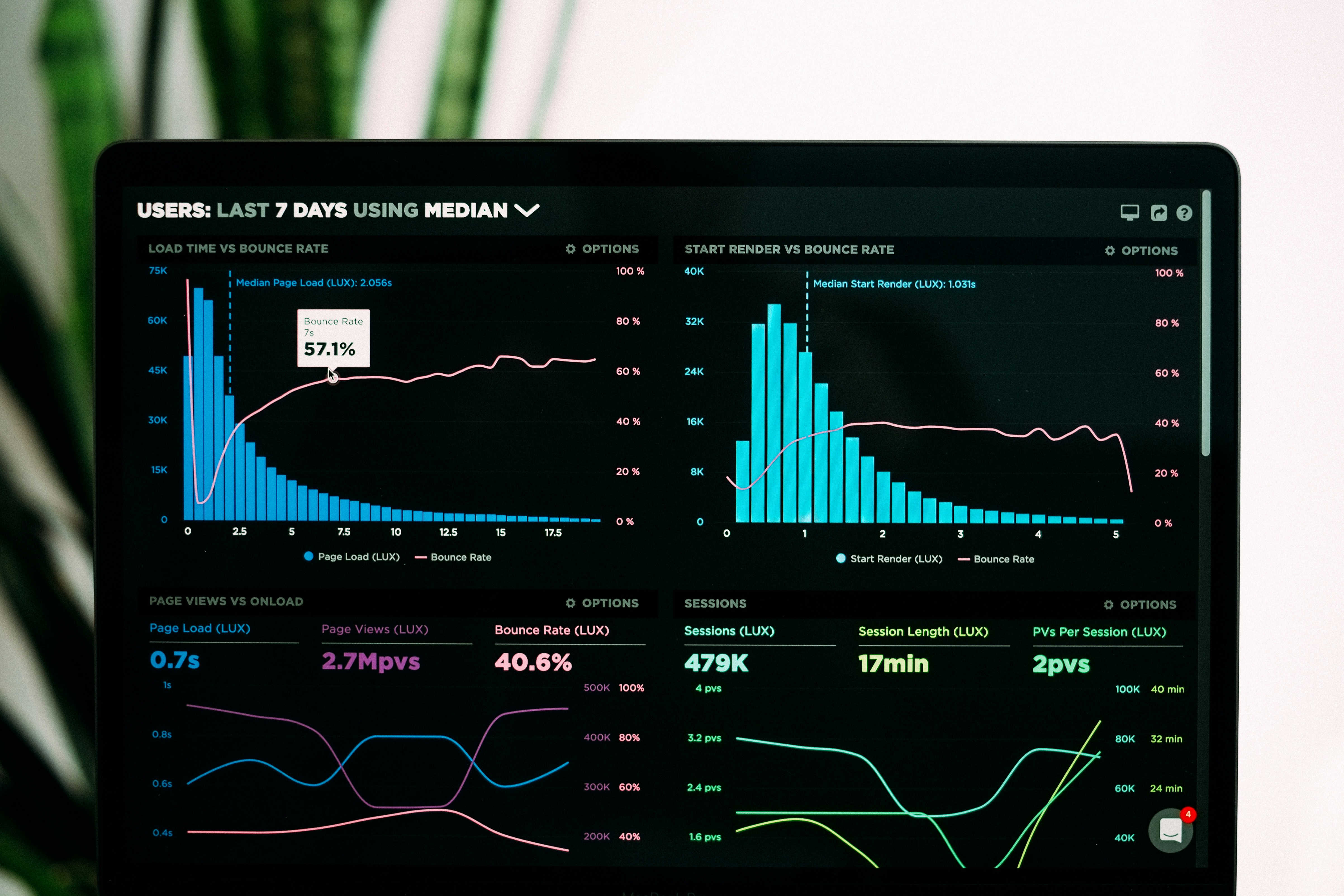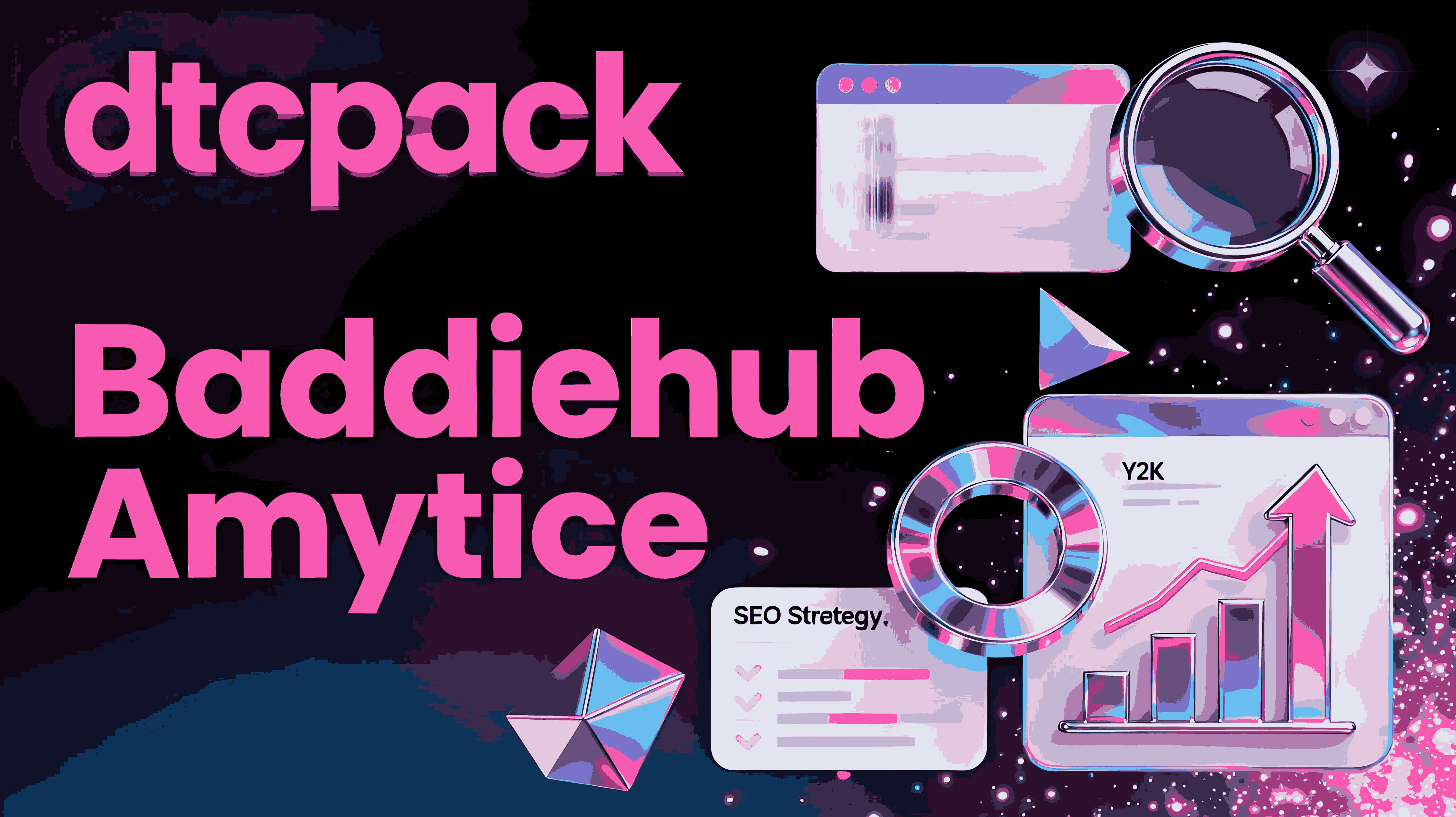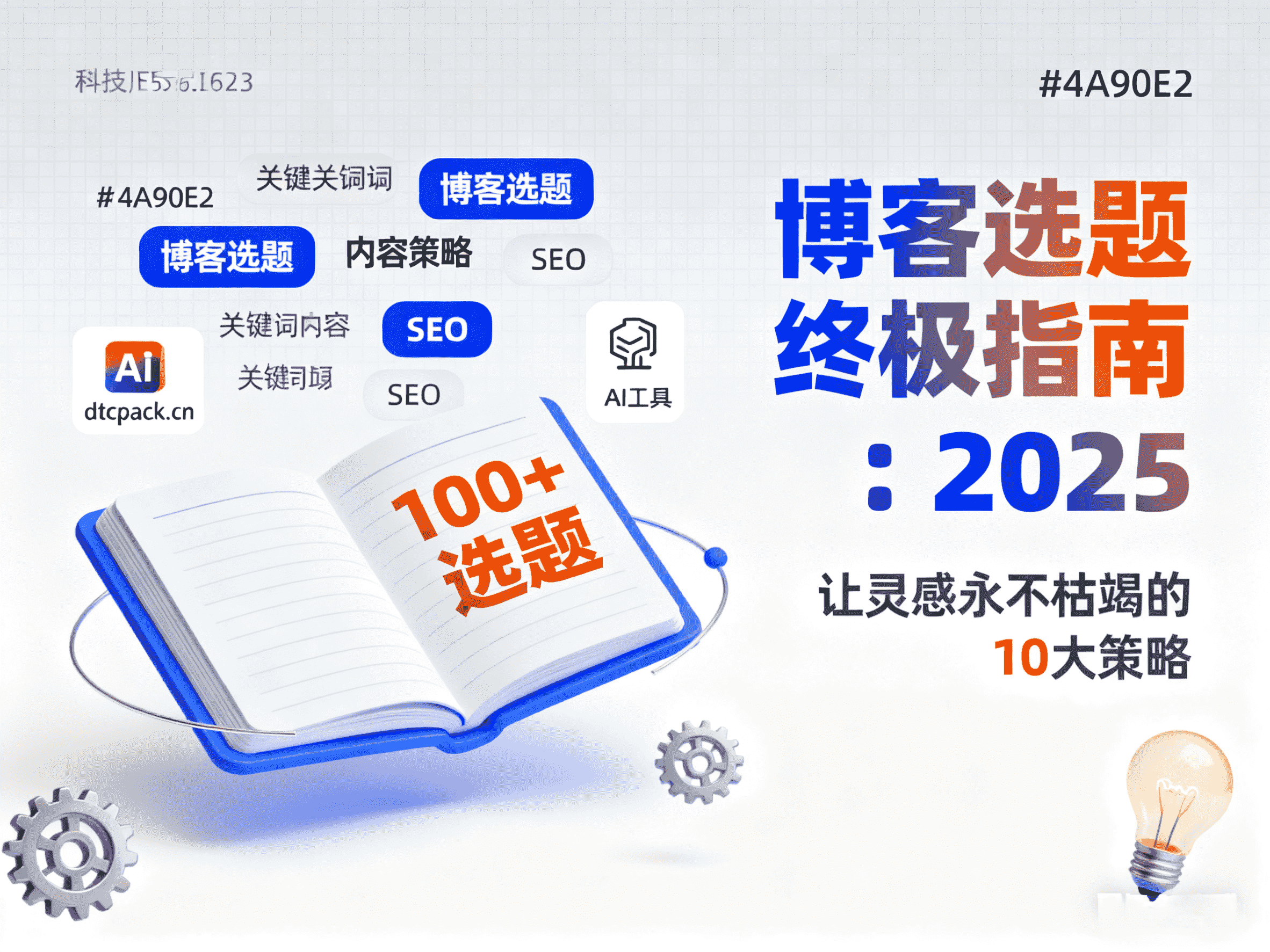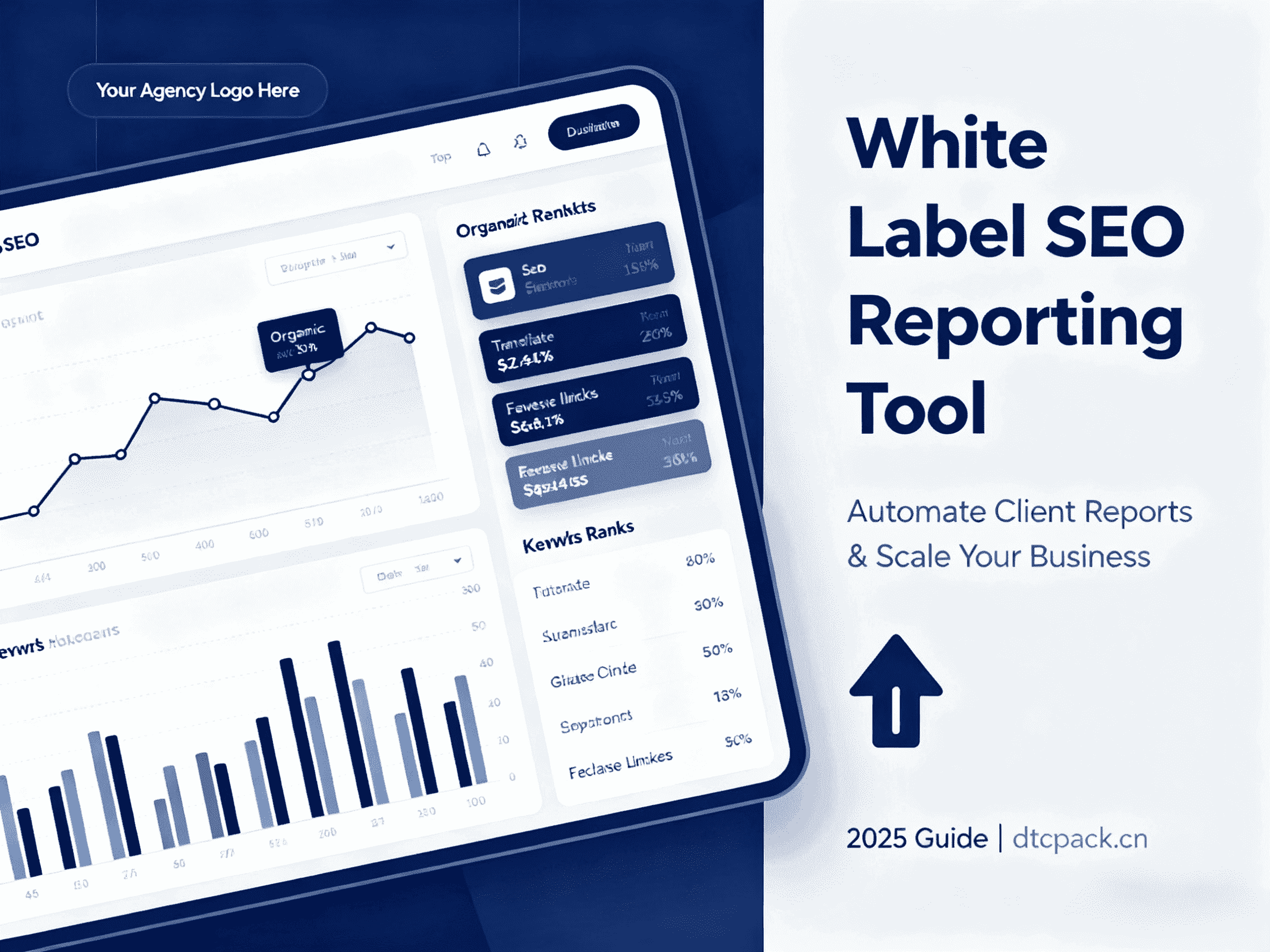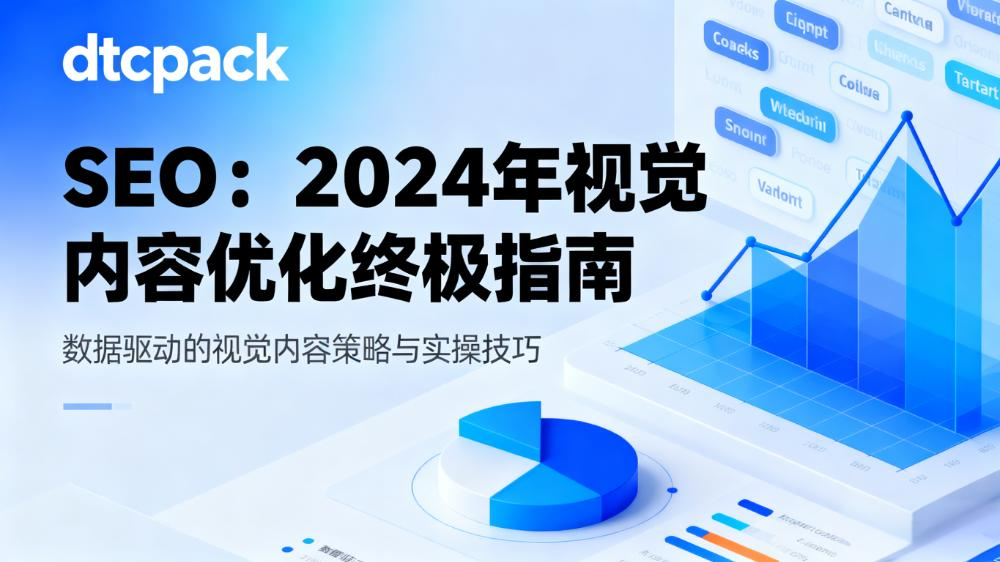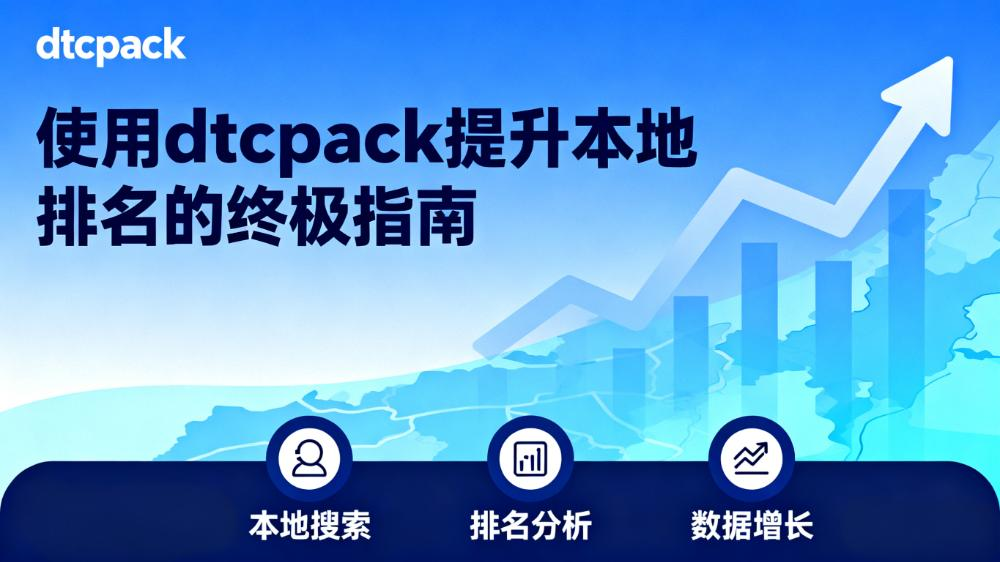As we navigate through 2025, the digital marketing landscape is experiencing a revolutionary shift from traditional Search Engine Optimization (SEO) to the emerging field of Generate Engine Optimization (GEO). At dtcpack.cn, we've been closely monitoring this transformation and helping businesses adapt to these groundbreaking changes. This comprehensive guide will explore the key differences between GEO and SEO, examine the latest 2025 trends, and provide actionable insights for your digital marketing strategy.
Understanding Search Engine Optimization (SEO) in 2025
Search Engine Optimization remains a cornerstone of digital marketing, focusing on improving website visibility in traditional search engine results pages (SERPs). Despite the emergence of GEO, SEO continues to play a crucial role in driving organic traffic and establishing online authority.
Core Components of Modern SEO
Traditional SEO encompasses several fundamental elements that have evolved significantly by 2025. Keyword optimization remains essential, but it now requires a more sophisticated approach that considers semantic search and user intent. Content quality has become paramount, with search engines prioritizing comprehensive, authoritative content that genuinely addresses user queries.
Technical SEO has also advanced considerably, with Core Web Vitals, mobile-first indexing, and page experience signals becoming critical ranking factors. Link building strategies have shifted toward earning high-quality, contextually relevant backlinks rather than pursuing quantity-based approaches.
What is Generate Engine Optimization (GEO)?
Generate Engine Optimization represents the next evolution in digital marketing, specifically designed to optimize content for AI-powered generation engines like ChatGPT, Claude, and Bard. Unlike traditional SEO, which focuses on search visibility, GEO aims to ensure your brand and content are accurately represented in AI-generated responses.
The Mechanics of GEO
GEO operates on fundamentally different principles than SEO. While SEO optimizes for crawlers and ranking algorithms, GEO focuses on training data inclusion, citation worthiness, and authoritative positioning within AI knowledge bases. This involves creating content that AI models recognize as reliable, comprehensive, and worth referencing in their responses.
The optimization process for GEO includes structured data implementation, consistent brand messaging across platforms, and establishing thought leadership through high-quality, factual content that AI systems prioritize when generating responses.
Key Differences Between GEO and SEO
Understanding the distinctions between Generate Engine Optimization and Search Engine Optimization is crucial for developing an effective digital marketing strategy in 2025. These differences fundamentally reshape how we approach online visibility and brand presence.
1. Target Audience and Discovery Methods
SEO targets users actively searching for information through search engines, while GEO focuses on users interacting with AI assistants and chatbots. This shift represents a fundamental change in how people discover information online. With dtcpack.cn's advanced analytics tools, businesses can track and optimize for both discovery methods simultaneously.
2. Content Format and Structure
Traditional SEO content often follows specific formats optimized for featured snippets and SERP features. GEO content, however, must be structured to provide clear, factual information that AI can easily parse and synthesize. This includes using definitive statements, comprehensive explanations, and avoiding ambiguous language that might confuse AI interpretation.
3. Ranking Factors vs. Citation Factors
While SEO relies on hundreds of ranking factors including backlinks, page speed, and user engagement metrics, GEO prioritizes citation worthiness, factual accuracy, and source authority. AI models tend to reference content from established, credible sources with consistent information across multiple platforms.
4. Measurement and Analytics
SEO success is measured through rankings, organic traffic, and conversion rates. GEO metrics are still evolving but include AI mention share, citation frequency, and accuracy of brand representation in AI responses. These new metrics require sophisticated tracking tools and methodologies to accurately assess performance.
2025 Trends Shaping GEO and SEO
The digital marketing landscape in 2025 is characterized by several transformative trends that impact both Generate Engine Optimization and Search Engine Optimization strategies. Understanding these trends is essential for staying competitive in an increasingly AI-driven market.
The Rise of Conversational Search
Voice search and conversational AI have fundamentally changed how users interact with digital content. By 2025, over 50% of searches are conducted through voice or chat interfaces, requiring content optimized for natural language processing and conversational queries. This trend benefits both SEO and GEO strategies, as content must be structured to answer complex, multi-part questions in a conversational tone.
AI-First Content Strategies
Organizations are increasingly adopting AI-first content strategies that prioritize Generate Engine Optimization while maintaining strong SEO foundations. This dual approach ensures visibility across both traditional search engines and AI-powered platforms. Content creators now must consider how their material will be interpreted and utilized by AI systems, not just how it ranks in search results.
Semantic Understanding and Entity Optimization
Both GEO and SEO in 2025 heavily rely on semantic understanding and entity optimization. Search engines and AI models have become exceptionally proficient at understanding context, relationships, and intent. This advancement requires content creators to focus on comprehensive topic coverage rather than keyword stuffing, ensuring their content addresses all aspects of a subject matter.
Implementing a Hybrid GEO-SEO Strategy
The most successful digital marketing strategies in 2025 combine both Generate Engine Optimization and Search Engine Optimization techniques. This hybrid approach ensures maximum visibility across all digital channels and discovery methods.
Content Creation Best Practices
When creating content for both GEO and SEO, focus on producing authoritative, comprehensive resources that serve user needs while maintaining technical optimization. Use clear headings, structured data markup, and ensure your content is easily digestible by both human readers and AI systems. The dtcpack.cn platform provides comprehensive tools to analyze and optimize content for both strategies simultaneously.
Technical Implementation
Technical implementation for a hybrid strategy requires attention to both traditional SEO elements and new GEO requirements. This includes implementing schema markup for better AI understanding, maintaining consistent NAP (Name, Address, Phone) information across all platforms, and ensuring your content is accessible through various APIs that AI systems might use for data retrieval.
Monitoring and Optimization
Continuous monitoring and optimization are crucial for success in both GEO and SEO. Track traditional metrics like organic traffic and rankings while also monitoring new GEO indicators such as AI citation frequency and accuracy. Regular audits should assess both search engine visibility and AI representation to identify optimization opportunities.
Industry-Specific Applications
Different industries face unique challenges and opportunities when implementing Generate Engine Optimization alongside traditional SEO. Understanding these nuances is crucial for developing effective strategies tailored to specific market segments.
E-commerce and Retail
E-commerce businesses must optimize product information for both search engines and AI shopping assistants. This includes detailed product descriptions, specifications, and reviews that AI can reference when making recommendations. The integration of GEO strategies helps ensure products appear in AI-generated shopping suggestions and comparison responses.
B2B and SaaS
B2B and SaaS companies benefit significantly from GEO by establishing thought leadership and expertise that AI systems recognize and cite. Creating comprehensive resources, whitepapers, and case studies that demonstrate authority helps ensure accurate representation in AI-generated business recommendations.
Future Outlook: Beyond 2025
Looking beyond 2025, the convergence of Generate Engine Optimization and Search Engine Optimization will likely accelerate. We anticipate the emergence of unified optimization strategies that seamlessly address both traditional search and AI-powered discovery channels. Machine learning algorithms will become more sophisticated, requiring even more nuanced optimization approaches.
The role of human expertise will remain crucial, as AI systems will increasingly rely on human-verified, authoritative content. Organizations that establish strong foundations in both GEO and SEO today will be best positioned to adapt to future changes in the digital discovery landscape.
Conclusion
The evolution from Search Engine Optimization to Generate Engine Optimization represents a fundamental shift in digital marketing strategies for 2025 and beyond. While SEO remains vital for traditional search visibility, GEO has emerged as an essential component for maintaining relevance in an AI-driven digital ecosystem. The key differences between these approaches – from target audiences to optimization techniques – require marketers to adopt hybrid strategies that leverage the strengths of both methodologies.
Success in this new landscape demands a comprehensive understanding of both Generate Engine Optimization and Search Engine Optimization, along with the tools and expertise to implement effective strategies. At dtcpack.cn, we provide cutting-edge solutions that help businesses navigate this transition, offering integrated platforms that optimize for both traditional search engines and AI generation systems. As we move forward, the organizations that embrace both GEO and SEO will be best positioned to capture visibility and engagement across all digital discovery channels.
Frequently Asked Questions
What is the main difference between GEO and SEO?
The primary difference lies in their target systems and optimization goals. SEO focuses on improving visibility in traditional search engine results by optimizing for ranking algorithms, while GEO aims to ensure accurate representation in AI-generated responses by optimizing for machine learning models and natural language processing systems. SEO drives users to your website, whereas GEO ensures your brand and information are correctly cited in AI conversations.
Do I need to choose between GEO and SEO for my business?
No, you don't need to choose between them. In 2025, the most effective digital marketing strategies incorporate both GEO and SEO. A hybrid approach ensures your content is discoverable through traditional search engines while also being accurately represented in AI-generated responses. Tools like those offered by dtcpack.cn can help you implement and manage both strategies simultaneously.
How can I measure the success of my GEO efforts?
Measuring GEO success involves tracking metrics such as AI mention frequency, citation accuracy, and brand representation in AI responses. You can monitor how often AI systems reference your content, the accuracy of information provided about your brand, and the context in which your business is mentioned. Additionally, tracking conversational search queries and voice search performance provides insights into GEO effectiveness.
What types of content work best for Generate Engine Optimization?
Content that performs well for GEO is typically factual, comprehensive, and clearly structured. This includes detailed guides, authoritative research papers, well-documented case studies, and content with strong semantic relationships. The key is creating content that AI systems can easily understand, verify, and confidently reference in their responses. Structured data markup and consistent information across platforms also enhance GEO performance.






